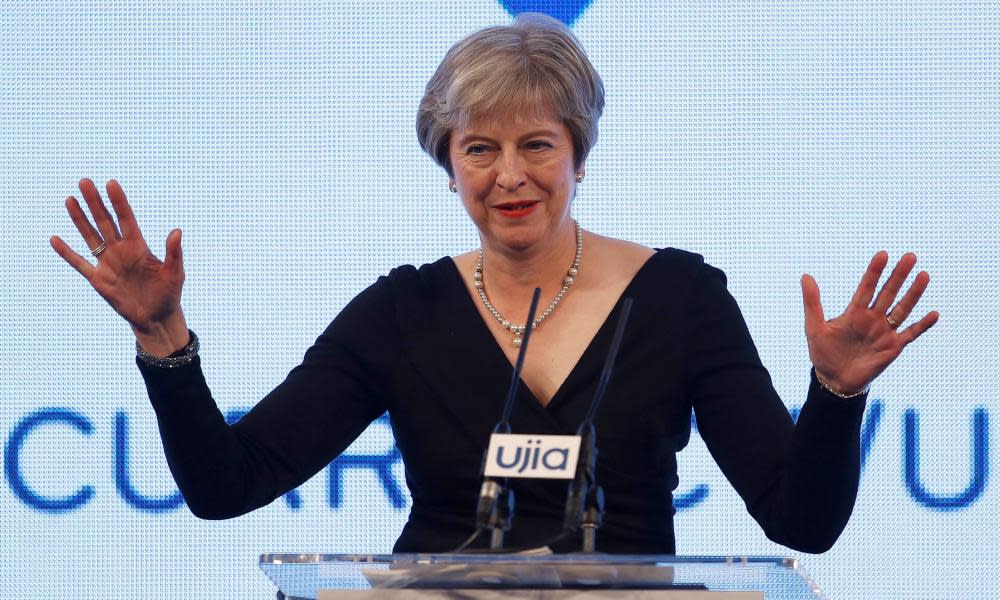Theresa May: I do not underestimate antisemitism threat

Theresa May has said she does not “underestimate the threat of antisemitism”, as she addressed a Jewish organisation in a speech in which she also called for the UK to boost its trade with Israel after Brexit and backed Israel’s “right to defend itself”.
The prime minister told a dinner hosted by the United Jewish Israel Appeal (UJIA) that she was aware of concerns raised by some British Jews, in remarks that did not mention Labour or Jeremy Corbyn but were clearly aimed at her opponents.
“I know some in our Jewish community say they are fearful of the future. I saw that poll on the front page of the Jewish Chronicle and it sickens me that anyone should feel like that in our country,” May said, referring to a survey that found 40% of British Jews would seriously consider emigrating if Corbyn became prime minister.
“I do not underestimate the threat posed by those who promote antisemitism, or hatred in any form,” May said. “But I do not believe those voices speak for the vast, overwhelming majority of people in our country.”
The UJIA dinner was held to mark the 70th anniversary of the foundation of Israel in 1948, and was expected to be attended by the chief rabbi, Ephraim Mirvis, and the country’s ambassador to the UK, Mark Regev. Mick Davis, the chief executive of the Conservative party, is a former chairman of the charity, which promotes links between British Jews and Israel.
In a transcript of her speech released before the event, May said she wanted “to fight racial and religious hatred” and added: “You cannot claim to be tackling racism if you are not tackling antisemitism.”
Arguing that defining antisemitism was critical to tackling it, May highlighted that “the government I lead was the first in the world to adopt the definition of the International Holocaust Remembrance Alliance”.
During the summer Labour was embroiled in a long-running row over antisemitism in which the party’s leadership came under pressure to adopt the IHRA definition in full. The party eventually did so this month, with an additional clarification that its adoption did not “in any way undermine the freedom of expression on Israel or the rights of Palestinians”.
May told her audience that she supported a two-state solution for the Middle East, with “a safe and secure Israel alongside a viable and sovereign Palestinian state”. She said this would require “courage and vision” and “an end to the building of new settlements and an end to Palestinian incitement too”.
She said she wanted to see an “ambitious free-trade deal” between the UK and Israel after Brexit, and she stressed her commitment to Israel’s security and said she understood Israel’s “vulnerability”.
May added: “So I am clear that we will always support Israel’s right to defend itself … You can also count on me to defend Israel’s values, because Israel is a country like ours that believes in liberty, democracy and the rule of law.”

 Yahoo News
Yahoo News 
